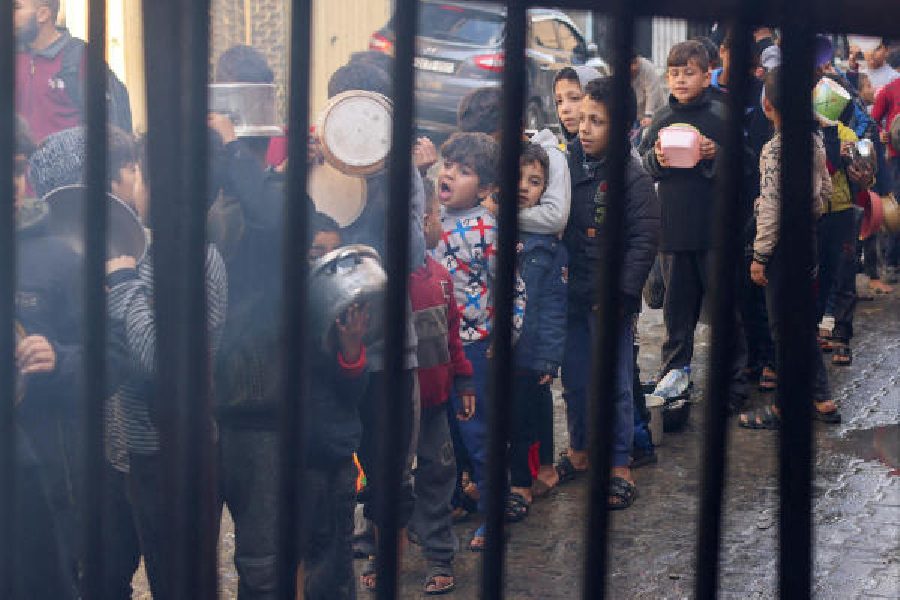Fighting in the Gaza Strip escalated on Thursday with what residents described as some of the most intense Israeli bombardment of the war, even as the enemies held what Washington called “very serious discussions” on a new truce.
Bombing was at its most intense over the northern part of the Gaza Strip where orange flashes of explosions and black smoke could be seen as morning broke from across the fence in Israel. Planes roared overhead and the booms of air strikes thundered every few seconds, punctuated by rattling gunfire.
In the south, where hundreds of thousands of people are sheltering from the war that has laid much of Gaza to waste, Hamas said an Israeli strike killed the commander of the main checkpoint opened just days ago to let in aid.
Residents in Jabalia in the north of the Strip close to the Israeli border said the area was now completely cut off with Israeli snipers now firing on anyone trying to escape.
“It was one of the worst nights in terms of the occupation bombings. Also, we could hear heavy fighting despite that,” said one Jabalia resident who asked not to be identified for fear of reprisal.
With Gaza’s communications links shut down for a second day, the resident spoke to Reuters by phone using an electronic SIM card to access the Israeli mobile network across the fence. Gazans say such cuts to communication links have typically heralded Israeli assaults.
In a social media post, the Palestinian Red Crescent said ambulances were now unable to reach large numbers of casualties inside Jabalia.
“We have received several appeals regarding continuous shelling on Al-Banna Street, Nazzala in Jabalia, northern Gaza with dozens of martyrs and wounded individuals besieged there. Unfortunately, neither the emergency teams nor the rescue teams have been able to reach them,” it said.
The WHO said on Thursday the last hospital in the northern half of the Gaza Strip had effectively ceased functioning over the past two days, leaving no place left to take the wounded.
The intensification of fighting comes even as diplomatic efforts have been ramped up in the final weeks of the year to stave off humanitarian catastrophe.
The sides are discussing a new truce to release some of the more than 100 hostages still held by militants who stormed Israeli towns on a killing spree on October 7. At the same time, the UN Security Council is working on a new plan to ramp up aid.
Ismail Haniyeh, leader of Hamas, the Iran-backed militant group that controls Gaza, was in Egypt for a second day on Thursday for negotiations, a rare personal intervention which in the past has signalled important stages in diplomacy. Islamic Jihad, another militant group, said its leader was also headed there.











